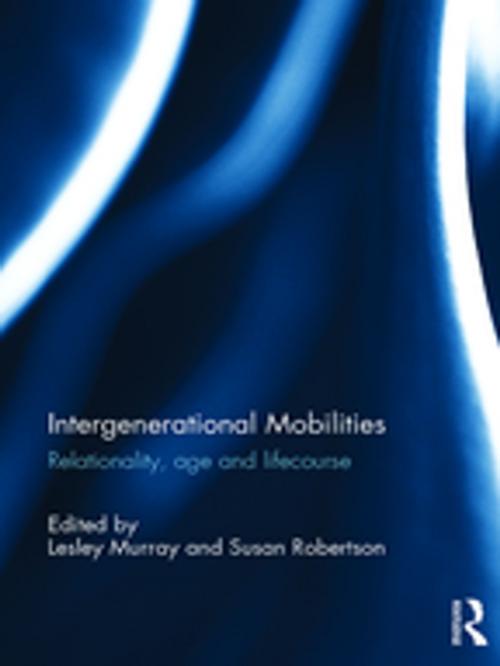Intergenerational Mobilities
Relationality, age and lifecourse
Nonfiction, Science & Nature, Science, Earth Sciences, Geography| Author: | ISBN: | 9781317114574 | |
| Publisher: | Taylor and Francis | Publication: | October 4, 2016 |
| Imprint: | Routledge | Language: | English |
| Author: | |
| ISBN: | 9781317114574 |
| Publisher: | Taylor and Francis |
| Publication: | October 4, 2016 |
| Imprint: | Routledge |
| Language: | English |
Drawing from work on mobilities and geographies of the lifecourse, this collection is concerned with the ways in which age, as a relational concept, is constructed and played out in mobile urban space. With studies of ageing and mobility often focusing on discrete age groups, most notably children and older people, this study seeks to fill a gap in existing literature by exploring mobility in relation to the lifecourse and generation, looking not only at the margins. Whilst some generations are increasingly mobile, others are less so and this disparity in mobility opportunity is relational as age is relational. This book addresses gaps in knowledge in relational geographies of ageing, whilst contributing to literature on mobility and transport, in particular the burgeoning field of mobility (in)justice. Here mobility is considered in its broadest sense, for example in relation to the movement or lack of movement of bodies and to computer-mediated intergenerational communications. Through focusing on urban mobile spaces, from very local spaces of medical care to global spaces of migration that are the context for intergenerational mobilities, this collection explores these interdependencies and considers ways in which intergenerational mobilities are conceptualised and researched.
Drawing from work on mobilities and geographies of the lifecourse, this collection is concerned with the ways in which age, as a relational concept, is constructed and played out in mobile urban space. With studies of ageing and mobility often focusing on discrete age groups, most notably children and older people, this study seeks to fill a gap in existing literature by exploring mobility in relation to the lifecourse and generation, looking not only at the margins. Whilst some generations are increasingly mobile, others are less so and this disparity in mobility opportunity is relational as age is relational. This book addresses gaps in knowledge in relational geographies of ageing, whilst contributing to literature on mobility and transport, in particular the burgeoning field of mobility (in)justice. Here mobility is considered in its broadest sense, for example in relation to the movement or lack of movement of bodies and to computer-mediated intergenerational communications. Through focusing on urban mobile spaces, from very local spaces of medical care to global spaces of migration that are the context for intergenerational mobilities, this collection explores these interdependencies and considers ways in which intergenerational mobilities are conceptualised and researched.















